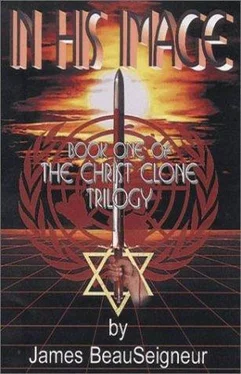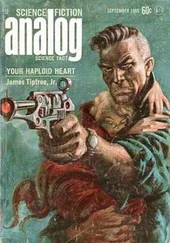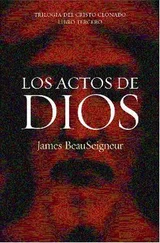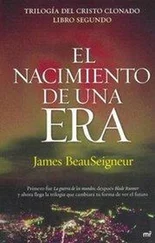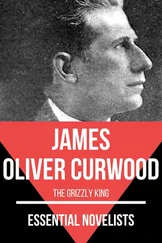The Prince of Rome
Eight years later: Sunday, June 30, 2019 – Germany
The train from Heidelberg to Frankfurt sped quietly along the track through the German summer evening. A few hundred meters to the left, the foothills of the Odenwald Mountains burst forth from the flat plains of the Rhine Valley to form the western wall of what in millennia past had been a massive sea. Every eight or ten kilometers along the crest of the mountains, castles sat in various states of repair, some in ruins, others still inhabited. Along the mountain's base, the beautiful towns and villages of the Bergs-trctfle were punctuated by the seemingly requisite steeples and onion-domes of the state-supported Catholic and Lutheran churches. Farther away in the west but within clear sight of the train, the steeples of the small village of Biblis Lorsch were overshadowed by the seven massive cooling towers of Germany's largest nuclear power plant.
Behind the powerful electric engine that pulled the dingy yellow and blue train were three private cars that had been commissioned for the Secretary-General of United Nations, his party, and the ever-present members of the press. Two hours earlier, at the castle of Heidelberg, Secretary-General Jon Hansen had given a speech to a group of international business leaders on the benefits of the recent United Nations decision to remove the remaining barriers to trade among nations. To the casual listener the speech was not particularly stirring, but Hansen was preaching to the choir – an audience of men and women from all over the world who had been at the forefront of the effort to eliminate trade barriers. World peace under Hansen had been good for capitalism and for capitalists.
Most notable among the rich and powerful in attendance was billionaire David Bragford, who had introduced the Secretary-General to the assembly. It was commonly believed that five years earlier Bragford had been the driving force behind the elimination of most of the trade barriers established by the European Economic Community. It was only a question of time before he sought the total elimination of all trade barriers.
Jon Hansen was now in the fourth year of his third consecutive term as Secretary-General, a position that had grown continually in importance since his first oath of office. Now, as more and more power was consolidated both under Hansen and the restructured Security Council, the pace of that consolidation was increasing. The time had passed some years earlier when politicians and news commentators addressed themselves to the subject of whether there would be a unified world government; now they pondered such topics as how that government might best be administered. There were still significant hurdles to be cleared before its final realization. No one of major consequence was calling for the complete dissolution of independent nations – not publicly, anyway – yet the direction was undeniable.
It was not as though one day mankind awoke to find a world where national interests were of no importance and all power resided in a global dictatorship headquartered in New York. Rather, the centralized management of international matters by the U.N. – under the guidance of Hansen and the Security Council – had facilitated remarkable advances by allowing compromise and cooperation among nations that would have been unimaginable a few decades earlier. The regionalized structure of the Security Council and the even-handed leadership of Jon Hansen had brought balance to the treatment of all nations and had succeeded in bringing about a general peace that was accompanied by prosperity throughout most of the world. As Hansen pointed out quite regularly, now that international matters were handled internationally, the governments of the individual countries were free to focus on their provincial interests.
There were, of course, exceptions to the general prosperity, for no amount of good government could alleviate natural disasters. One such exception was the Indian subcontinent, and especially northern India and Pakistan, which were in a rapidly worsening state of famine due to a combination of drought and wheat rust.
In the Secretary-General's private train compartment, Jon Hansen and Decker Hawthorne were conferring on the upcoming annual State of the World Address. "I've received drafts of the annual reports from all of the members of the Security Council and from each of the agencies of the Secretariat with the exception of the Food and Agriculture Organization," Decker told Hansen. "This is the draft of your address except for the information from FAO." Decker handed Hansen an eighty-four page document entitled 'STATE OF THE WORLD ADDRESS – 2019/DRAFT,' which Hansen proceeded to page through, scanning the contents.
"As you can see," Decker continued, "we've already prepared most of the text dealing with world hunger and agricultural production and we just need to fill in the figures once we have the FAO report. Then we'll liven it up a bit with some personal insights from your upcoming trip to Pakistan."
"Have you addressed each of my eight points on distribution of agricultural resources?" Hansen asked.
"Yes, sir. That begins on page 16."
Hansen flipped to the page and began reading. While it was not possible to legislate away things such as famine, Hansen felt it was imperative that the United Nations do everything in its power to reduce the suffering by providing massive food shipments to the affected countries. The problem with this was that someone had to pay for the food and it was this problem that Hansen's eight points on the distribution of agricultural resources was intended to address. "Yes, this looks good," Hansen said after a brief review. "You're flying to Rome from Frankfurt?" Hansen asked Decker.
"Yes, Jack Redmond and I are meeting with Christopher at FAO headquarters in Rome to iron out the final projections and recommendations for the agricultural quotas from each region for distribution to the poorer nations. We'll meet you on Wednesday in Pakistan."
"Good. I think it's important that we get Jack's input," Hansen agreed, referring to his chief political adviser. "We need to have a solidly defensible position for the distribution quotas when I introduce the measure to the General Assembly next month." Decker nodded acknowledgment. "This program won't be easy to implement," Hansen said. "Those who have an abundance are not exactly standing in line to give it away. The problem with the 'New World Order' is that it's still populated by the same 'old' people," Hansen said, repeating one of his favorite phrases, "Anything you, Jack, and Christopher can come up with to make it politically more palatable will be helpful."
"I think Jack and Christopher have a few ideas that might help," Decker said. Decker was always careful to make any comment about Christopher an understatement. His pride in Christopher was obvious even to a casual observer, but no one could doubt that Christopher's rapid rise as a member of the U.N. Secretariat was entirely deserved. His success over the past three years as Director-General of the U.N.'s Food and Agriculture Organization (FAO), headquartered in Rome, made him the heir apparent to Louis Colleta, Executive Director of the Economic and Social Council (ECOSOC) in New York, who had announced that he would retire the following spring. Indeed, most of Hansen's eight point plan had been developed by Christopher in his role as Director-General of FAO.
Until the reorganization of the Security Council, ECOSOC had been the umbrella agency for more than half of the U.N.'s dozens of organizations, including FAO. After the reorganization, all the U.N. organizations were divided into more-or-less logical groupings and placed under ten umbrella agencies chaired by each of the Security Council Alternates.
Читать дальше
